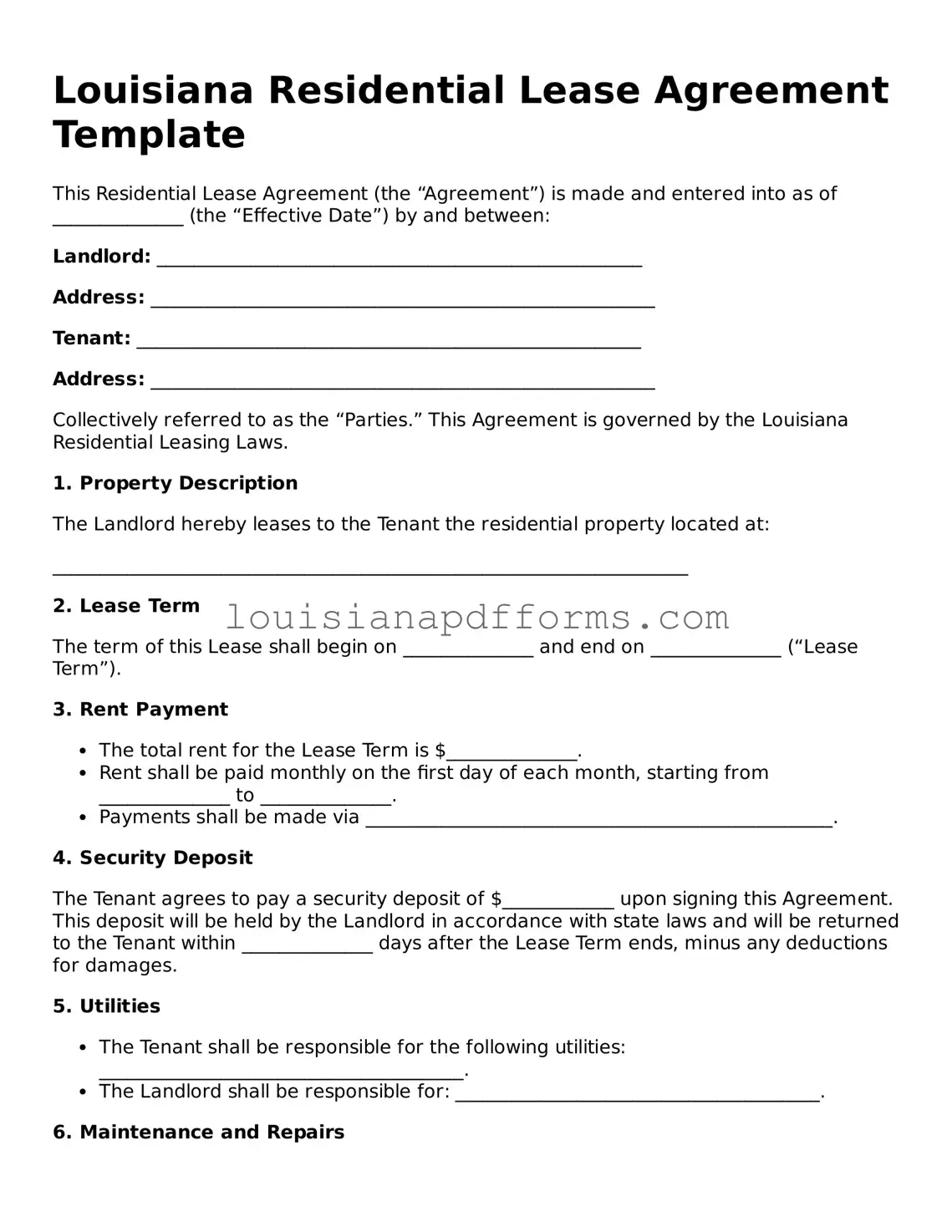Louisiana Residential Lease Agreement Form
The Louisiana Residential Lease Agreement form is a legal document that outlines the terms and conditions between a landlord and a tenant for renting residential property in Louisiana. This agreement serves to protect the rights and responsibilities of both parties, ensuring a clear understanding of the rental arrangement. Knowing the details of this form can help prevent misunderstandings and disputes during the lease period.
Access My Document Now

Louisiana Residential Lease Agreement Form
Access My Document Now

Access My Document Now
or
Free Residential Lease Agreement
You’re halfway through — finish the form
Edit, save, and download your completed Residential Lease Agreement online.